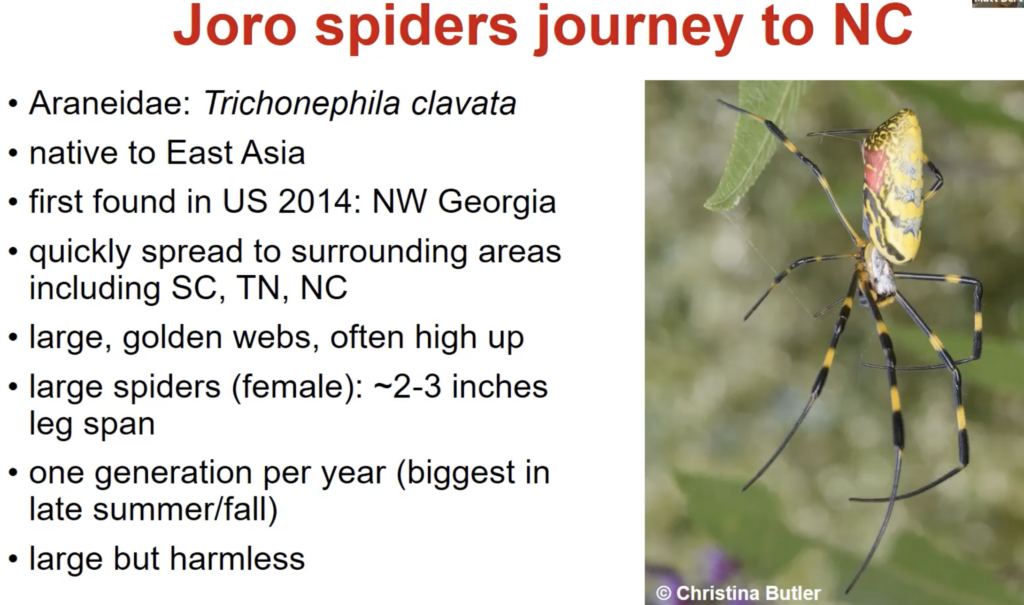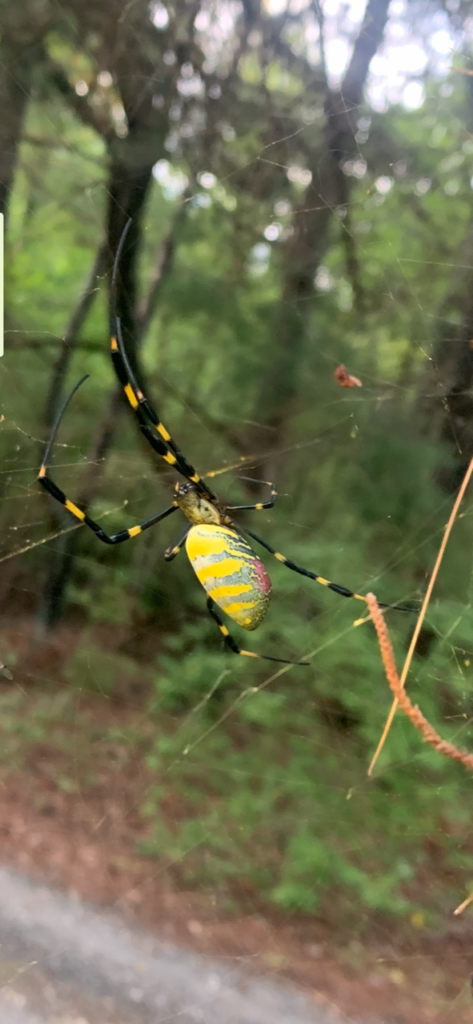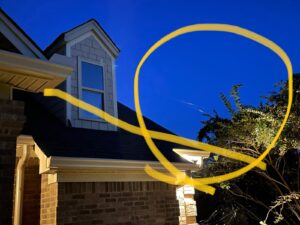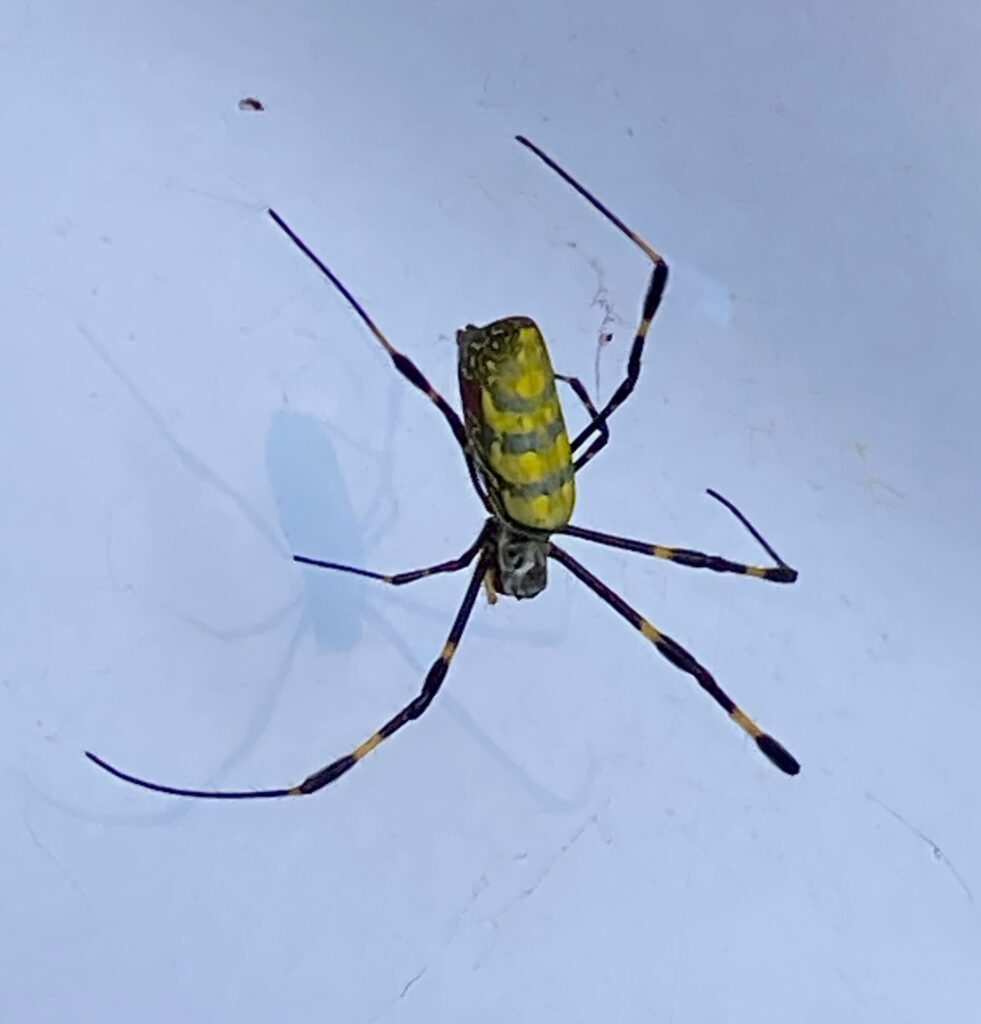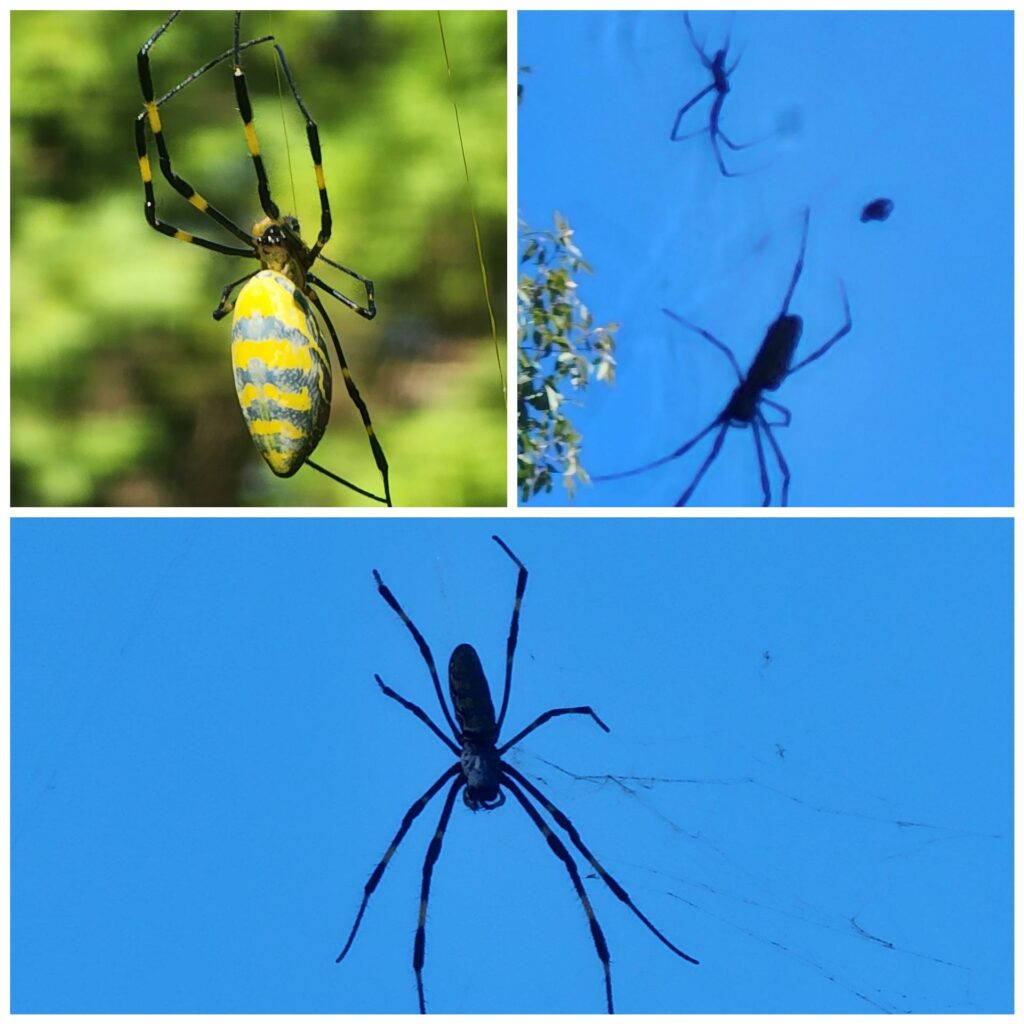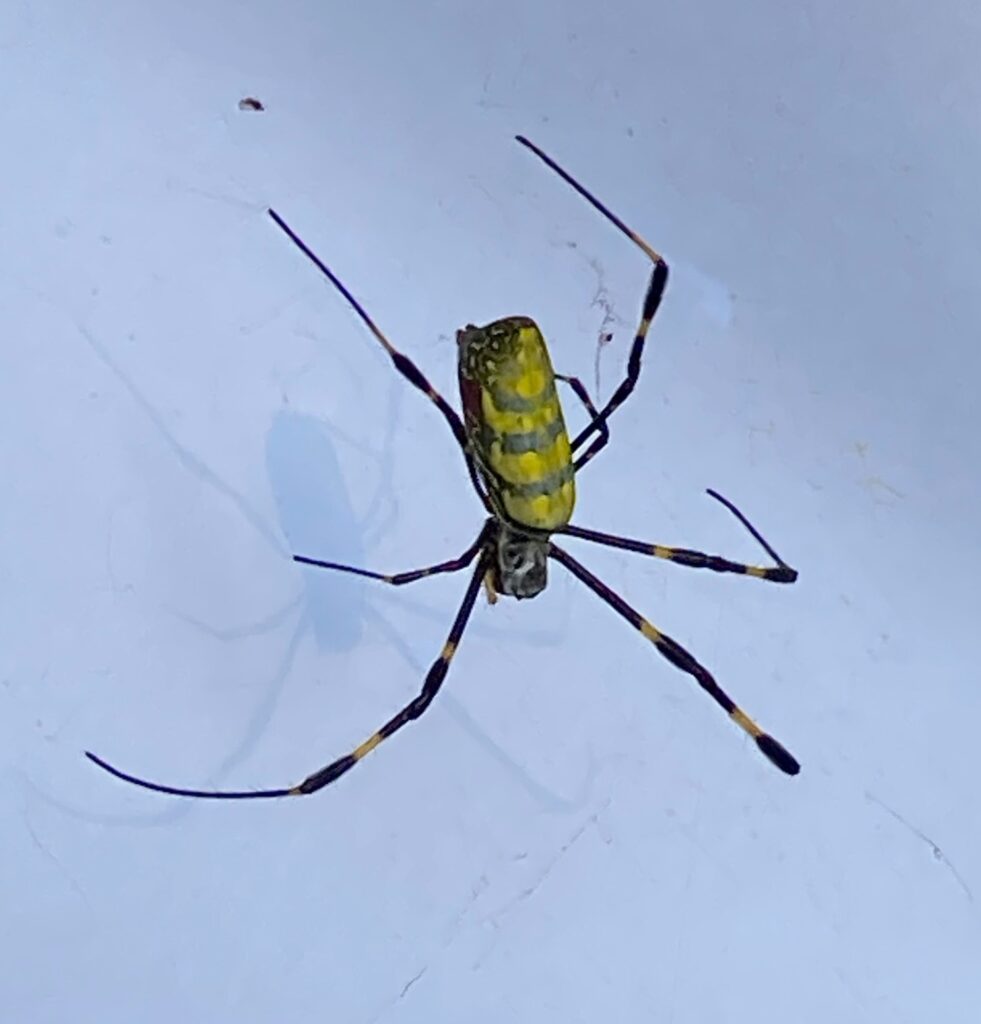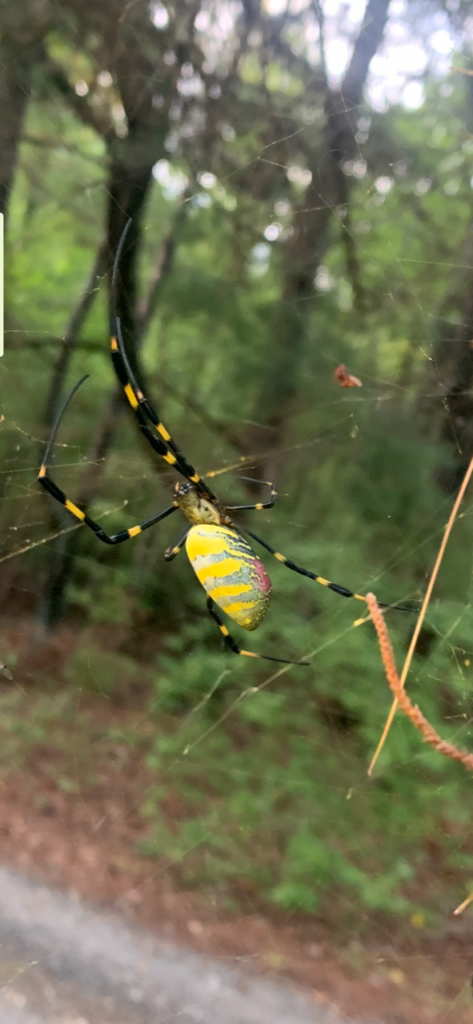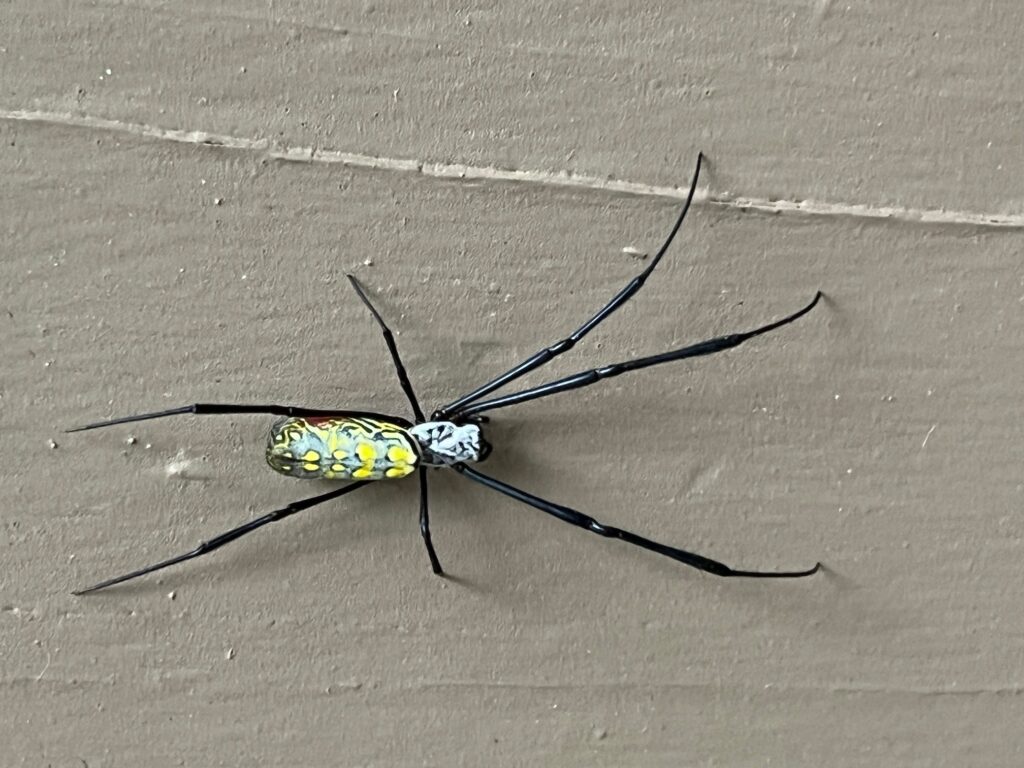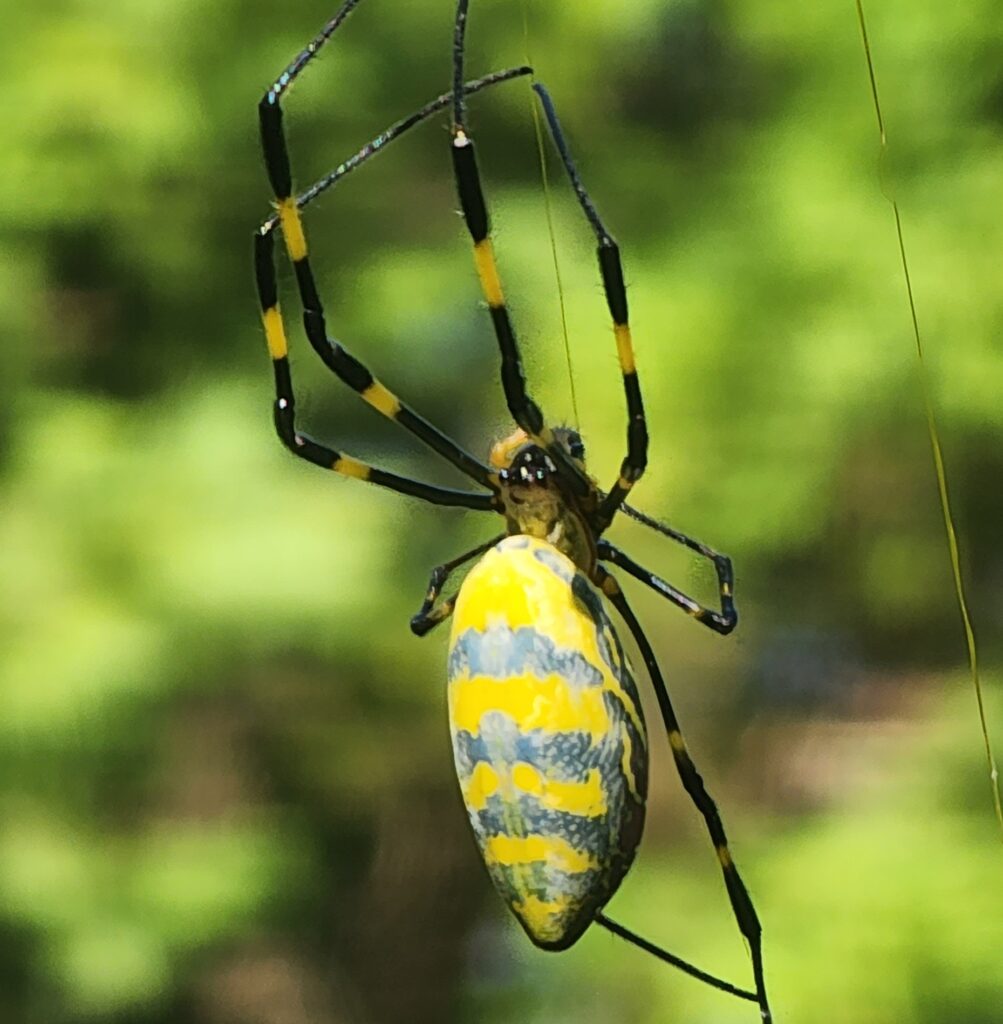Joro Spider In North Carolina
go.ncsu.edu/readext?823690
en Español / em Português
El inglés es el idioma de control de esta página. En la medida en que haya algún conflicto entre la traducción al inglés y la traducción, el inglés prevalece.
Al hacer clic en el enlace de traducción se activa un servicio de traducción gratuito para convertir la página al español. Al igual que con cualquier traducción por Internet, la conversión no es sensible al contexto y puede que no traduzca el texto en su significado original. NC State Extension no garantiza la exactitud del texto traducido. Por favor, tenga en cuenta que algunas aplicaciones y/o servicios pueden no funcionar como se espera cuando se traducen.
Português
Inglês é o idioma de controle desta página. Na medida que haja algum conflito entre o texto original em Inglês e a tradução, o Inglês prevalece.
Ao clicar no link de tradução, um serviço gratuito de tradução será ativado para converter a página para o Português. Como em qualquer tradução pela internet, a conversão não é sensivel ao contexto e pode não ocorrer a tradução para o significado orginal. O serviço de Extensão da Carolina do Norte (NC State Extension) não garante a exatidão do texto traduzido. Por favor, observe que algumas funções ou serviços podem não funcionar como esperado após a tradução.
English
English is the controlling language of this page. To the extent there is any conflict between the English text and the translation, English controls.
Clicking on the translation link activates a free translation service to convert the page to Spanish. As with any Internet translation, the conversion is not context-sensitive and may not translate the text to its original meaning. NC State Extension does not guarantee the accuracy of the translated text. Please note that some applications and/or services may not function as expected when translated.
Collapse ▲The Golden Orb Weaver or Joro Spider has invaded northeast Georgia and is heading our way. In the last five years, these giant spiders have spread to multiple counties in north Georgia and now are being found in South Carolina and North Carolina including Henderson County. Reported sightings really increased in fall of 2024.
Slide from NC PDIC presentation
What is the Big Deal?
Where they have established themselves these enormous spiders make walking outdoors in the late summer creepy, to say the least. The fall is when these spiders are the most noticeable because this when they achieve their full adult size. Outdoor recreation is seriously hampered by the robust webs when they are blocking hiking trails and near fishing waters. Fly lines will get tangled in these webs. Hikers and bikers are going to be unhappy about running into these enormous spiders and their robust webs!
Golden Orb Weaver
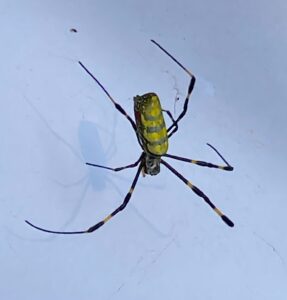
The Golden Orb Weaver/Joro Spider can be identified by black legs with yellow-orange stripes and a bright yellow body with bluish-green stripes on its back and red markings on its underside. It also spins gold-colored webs. Photo by Stephan Brown, USG
The Joro Spider is called the Golden Orb Weaver because the silken threads they spin are gold colored. The spiders spin huge webs using silk as thick as fishing line. Walking into a web as big as a person that houses a spider as big as your hand is unnerving. Fortunately, these spiders do not bite people or pets.
Personal Experience
This author experienced these spiders on a camping trip to Northeast Georgia. The sheer number of spiders was incredible. I counted a half dozen of the webs and spiders within 50 feet of each other. Their presence was noted every 20-30 feet down trails and along woodland edges. Walking around at night was a harrowing experience trying to avoid getting one of the spiders in the face.
Where Do Joro Spiders Live?
So far, it appears these spiders prefer areas near water. Ponds, streams, and rivers could be their preferred habitat. If you have a pond, boat, dock, or stream you will want to monitor these areas for the invasive spider. Reports are that people are finding these things all over the place, not just near water. Wherever there are vertically parallel power lines, there are hundreds of spiders. Tree climbing arborists report the spiders infesting tree tops.
Controlling Joro Spiders
Joro spiders can lay 1000 eggs per female. To prevent the spiders from establishing populations on your property, use insecticides to kill each Joro spider you see. Avoid killing native orb weaver spiders as they are beneficial to humans and the environment. Insecticide sprays that include pyrethroids such as wasp sprays or flying insect sprays have proven to be effective per research done at UGA. Learn more about the Joro spider from this UGA publication.
Report Sightings
If you do see a Golden Orb Weaver/Joro Spider in Western North Carolina, please let me know by emailing me at steve_pettis@ncsu.edu . These spiders are distinguishable from our native orb weavers by their golden spider webs, the webs being high off the ground, and their coloration. Joro Spiders have distinguishable yellow stripes across their abdomen.
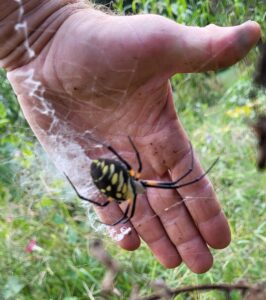
Native orb weavers are good spiders, capturing moths and other insects that can be pests to humans. Notice orb weavers are mostly black where Joro spiders are mostly yellow.





